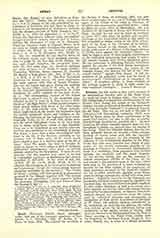

Annat, FRANCOIS, French Jesuit, theologian, writer, and one of the foremost opponents of Jansenism, b. February 5, 1590, at Rodez; d. in Paris. June 14, 1670. He entered the novitiate of the Society of Jesus, February 16, 1607, was professor of philosophy for six, and of theology for seven years, in the college of his order at Toulouse, of which he was subsequently appointed rector. Later he filled the same office at Montpellier. He was Assistant to the General in Rome, and Provincial of Paris. In 1654 he was sent to court as confessor to Louis XIV, and, after the faithful and unselfish discharge of the responsible duties of this office, he felt compelled to resign, owing to the illicit attachment of the King to the Duchesse de la Valliere. He became known to the learned world, in 1632, by the publication of a defense of the Jesuit doctrine of Divine grace against the Oratorian Gibieuf. In 1644 he began a series of more lengthy contributions to the celebrated controversy that sought to reconcile human freedom with Divine efficacious grace. He was prominent in defending Catholic orthodoxy against the attacks of the Port Royal theologians, and merited, in consequence, the notice of the versatile Pascal, who directed the last of the “Provincial Letters” against Pere Annat. A full description of his published works may be found in Sommervogel’s “Bibliotheque de la compagnie de Jesus”. A complete edition, in three volumes, of his writings appeared in Paris, in 1666, under the title “Opuscula Theologica”.
JAMES J. SULLIVAN

